Conflict in the Northern region of Kenya is linked to several primary causes: scarcity and mismanagement of core environmental resources, infrastructure, insecurity, weak institutions, the political governance, historic tribal grievances as well as cultural conflict memory.
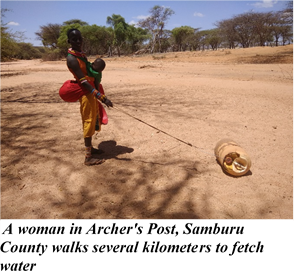
The increasing hostile climatic and environmental pressure in Northern Kenya constrains the life of pastoral communities. Most parts of this region are very arid; experiencing extreme temperatures ranging from a minimum of 10.10°c to a maximum of 30.20°c, with an annual average of 20.10°c. Climate change has affected the bimodal rainfall pattern making it difficult to predict the onset of the short and the long rains. These erratic climatic conditions marked by prolonged, recurrent drought and high levels of salinity in water have led to reduced forage availability, depletion of herds, degradation of the environment and an increase in destitution.
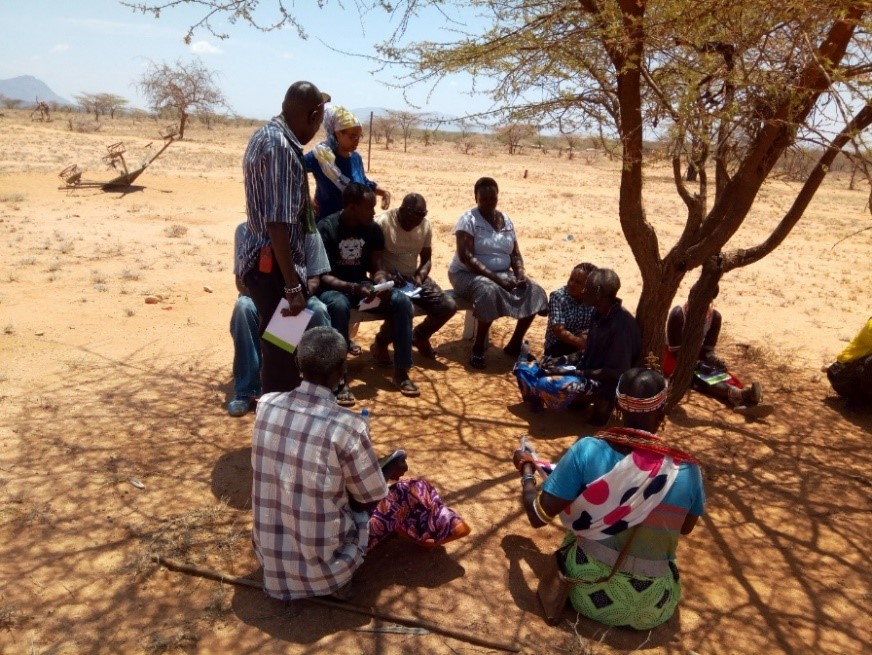
According to the deputy headteacher of Ngaremara Girls Secondary school, ‘‘many people in Ngaremara do not die a natural death; sadly, most of the community die in conflict, caused by the deteriorating environmental conditions.’’
The severe environmental conditions have imparted ‘survival for the fittest situation’. The scarceness of environmental resources has strained social relations as communities are pitted against each other struggling to get the little that the environment has to provide. The natural resources available in Northern Kenya not only play a life-sustaining role they also have a cultural stake, where communities have a great attachment to them.
The hostile environment conditions have increased resource competition, migration of communities, heightening insecurity and conflict. Furthermore, these challenges increase poverty, limit the availability of basic services such as clean water, shelter, education, health due to insecurity. The scarcity of resources in the environment renders the communities desperate to survive, therefore conflict arises from the way the environment acts on the individuals/communities.
Recently, Shalom-SCCRR hosted visitors from India, Mr. Yatendra Agrawal, and his son, at a peacemaking workshop. This was training on negotiation as a conflict management strategy leading to the establishment of a local framework in Archer’s Post in Samburu County and Ngaremara in Isiolo County. As Shalom-SCCRR trained the conflicting communities on how to establish local negotiation frameworks, Mr. Yatendra presented water purifiers to assist communities in purifying water making it suitable for human consumption as the water in these areas is unfit for human consumption due to high levels of salinity and harmful bacteria.
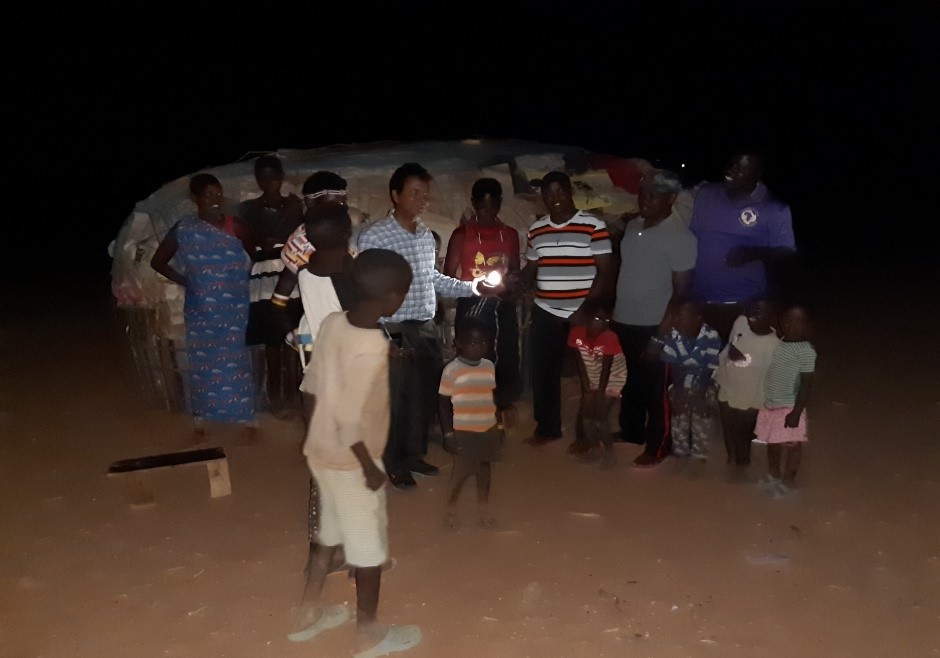
 Mr. Yatendra and Shalom-SCCRR team providing solar lamps to a Manyatta in a remote area near Archer’s Post. These areas lack electricity and use the moon and firelight regularly as a source of light for reading and writing
Mr. Yatendra and Shalom-SCCRR team providing solar lamps to a Manyatta in a remote area near Archer’s Post. These areas lack electricity and use the moon and firelight regularly as a source of light for reading and writingElectricity is also a major challenge in Northern Kenya, South Sudan, Somalia and regions of Ethiopia where most ethnic groups in the interior depend on natural sources of light (moon and fire light) at night. Shalom-SCCRR together with its partners are alleviating this by providing solar lighting to schools and ‘manyattas (traditional housing)’ as part of its Peace-development interventions.
Recently, Don Mullan paid a courtesy visit to Shalom-SCCRR office to meet the team. Don Mullan has put immense energy into the Great Green Wall Project. The project is aimed at curbing the alarming rate of desertification caused by climate change, reduce conflict and migration. Shalom-SCCRR’s International Chairman, Fr. Patrick Devine, PhD has addressed this issue on several occasions in local and international lectures; recently at the UN Conference Center Addis Ababa Ethiopia for the Plenary Assembly of AMECEA, as well as at DePaul University in Chicago, USA and at Edward M. Kennedy Institute, Maynooth University, among others. The sustainable management and sharing of Natural Resources are vital for Peace and intercommunity coexistence. Shalom-SCCRR together with local communities in the Northern region foster Natural Resource management plan through its Natural Resource use strategy.
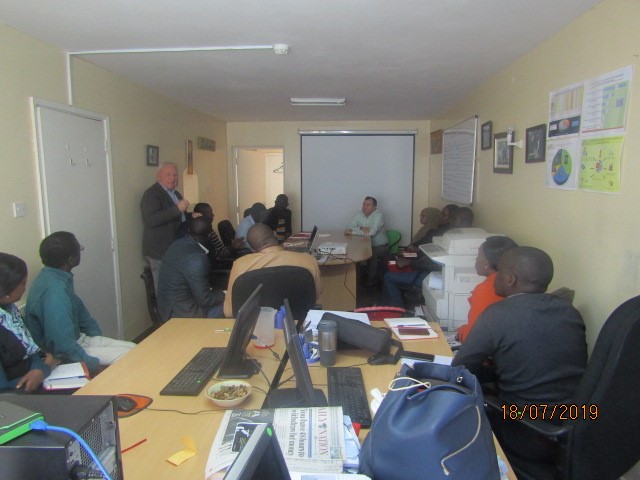
From a conflict research paradigm perspective, conflict is a learnt behavior through interaction with the environment. The Sustainable Development Goals (SDGs) recognize that children, who represent the majority of the population in many countries affected by conflict, are a key factor in building peaceful and strong societies. SCCRR has anchored its peace education strategy on this and has developed inter-ethnic and inter-religious schools and institutions; the provision of solar energy, construction of classroom, desks and books areas previously entrenched in violent conflict. Shalom- SCCRR’s objective is to provide an enabling environment for education as well as promoting interaction and providing opportunities that will create and restore positive relationships among conflicting inter-ethnic communities.
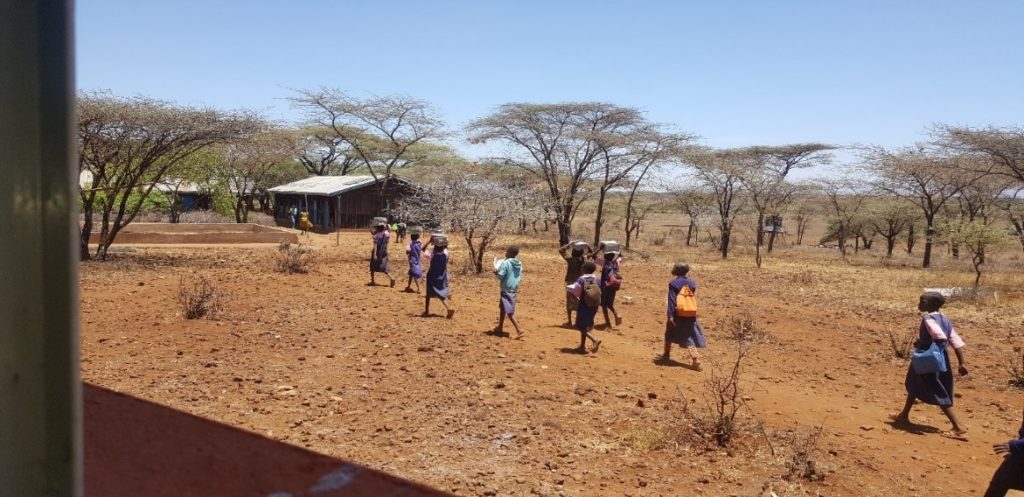
Shalom-SCCRR conducts structured Peace Education activities in many schools adversely affected by conflict. Recently, Ngaremara Girls Secondary school, GirGir, Laresoro, and Chumviyere Primary schools, among others, benefited immensely.
Shalom’s specialized Peace Education program is designed to instill a ‘culture of peace’ in areas of recurring conflict through inculcating positive values, knowledge, attitudes, skills, and behaviors for a better future. This is to enable the children to resolve their conflicts peacefully and be architects of their own future.
By: Asha Awed Said, MA Candidate, Program Assistant (Samburu & Nairobi Projects)

